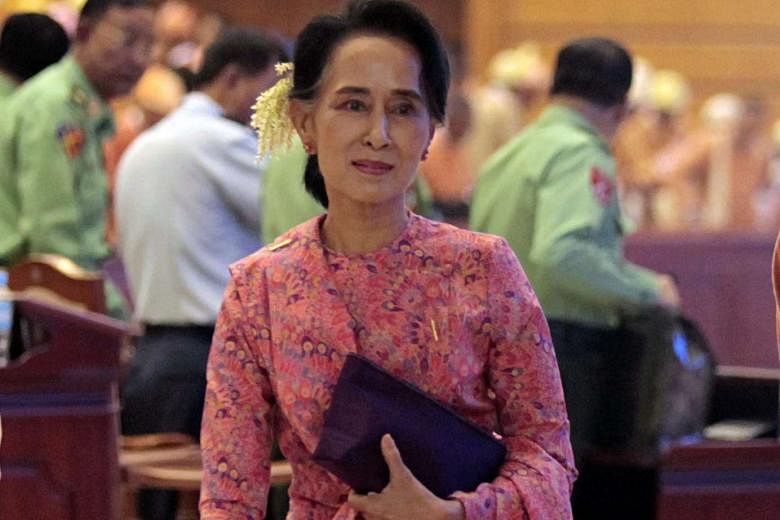Myanmar's new crop of parliamentarians - taking their seats yesterday to forge laws and afford checks and balances to administrative power for the next five years deserves a cheer of welcome from the populace as well as the international community. Free and fair elections in November set them firmly on course. They will need support and encouragement as they undertake the uphill task of laying a solid foundation for a functioning democracy and the rule of law in a country that has for so long been crippled by military rule.
This is the second set of parliamentarians seated under the current constitution, but it is indeed unique: 80 per cent of the seats won in the election belong to the National League for Democracy (NLD). The party has no ties to the military, having served as best it could in opposition for decades. Of the 664 seats in the lower and upper houses, the NLD laid claim to 390 in the polls, leaving just 41 seats for the former ruling Union Solidarity and Development Party (USDP) and another 60 for smaller interests, including ethnic representatives.
The NLD earned the legitimate right to form a cabinet under a president who serves as both head of state and government leader. The party is about to dominate both the executive and legislative branches. If Aung San Suu Kyi, the iconic leader of the NLD, could somehow incorporate the military into her government - with its 25-per-cent share of the seats and formidable veto power - no one would be left in parliament to balance her administrative control. That scenario is never welcome in democracy. Making allies of her former enemies in the much-disdained military might be what Suu Kyi needs to do, however, since the other parties, most notably the USDP, will form a daunting opposition.
Suu Kyi knows the Tatmadaw, as the military is known, better than most. She has had to deal with its whims and its demands for nearly three decades. The army ran the country from the 1960s until one of its own, Thein Sein, became civilian president and saw the wisdom of getting along better with the rest of the world. The main challenge for Suu Kyi and the NLD, who for the first time have a chance to reform the political lay of the land, will be in turning the Tatmadaw into a properly functioning cog in the social wheel. To do so, their immediate task in parliament is to find a way to make Suu Kyi president in the face of a constitutional prohibition against foreigners and relatives of foreigners assuming the highest office. Suu Kyi's sons are British nationals, as was her late husband. The NLD must either convince parliament to suspend or rewrite Article 59 (f), and for this it will certainly need the co-operation of the military. Over the longer term, the new government must foster a democracy that is fully functional, which will require the military to abandon politics altogether. In a true democracy, armies are the guardians of state security. Generals have no place in a legislative system. Elections are rendered meaningless unless those elected are accountable to the voters who chose them according to proposed policies. Outgoing President Thein Sein's promise of a smooth transfer of power in the next few weeks involves more that simply handing over administrative responsibilities to the NLD. Parliamentarians, their parties and in particular the military should already be mulling strategy for the transition to functional democracy. Democracy's needs reach beyond elections. It demands that all components of the system are working according to specific requirements. The new roster of parliamentarians in Myanmar has a crucial task ahead in the next five years. It must try to ensure that the voice of the people is heard loudly and the voice of the military not at all.
----------------------------------------------------------------------------------------------------------------------------------
The Nation is a member of The Straits Times media partner Asia News Network, a grouping of 22 newspapers seeking to promote coverage of Asian affairs.

